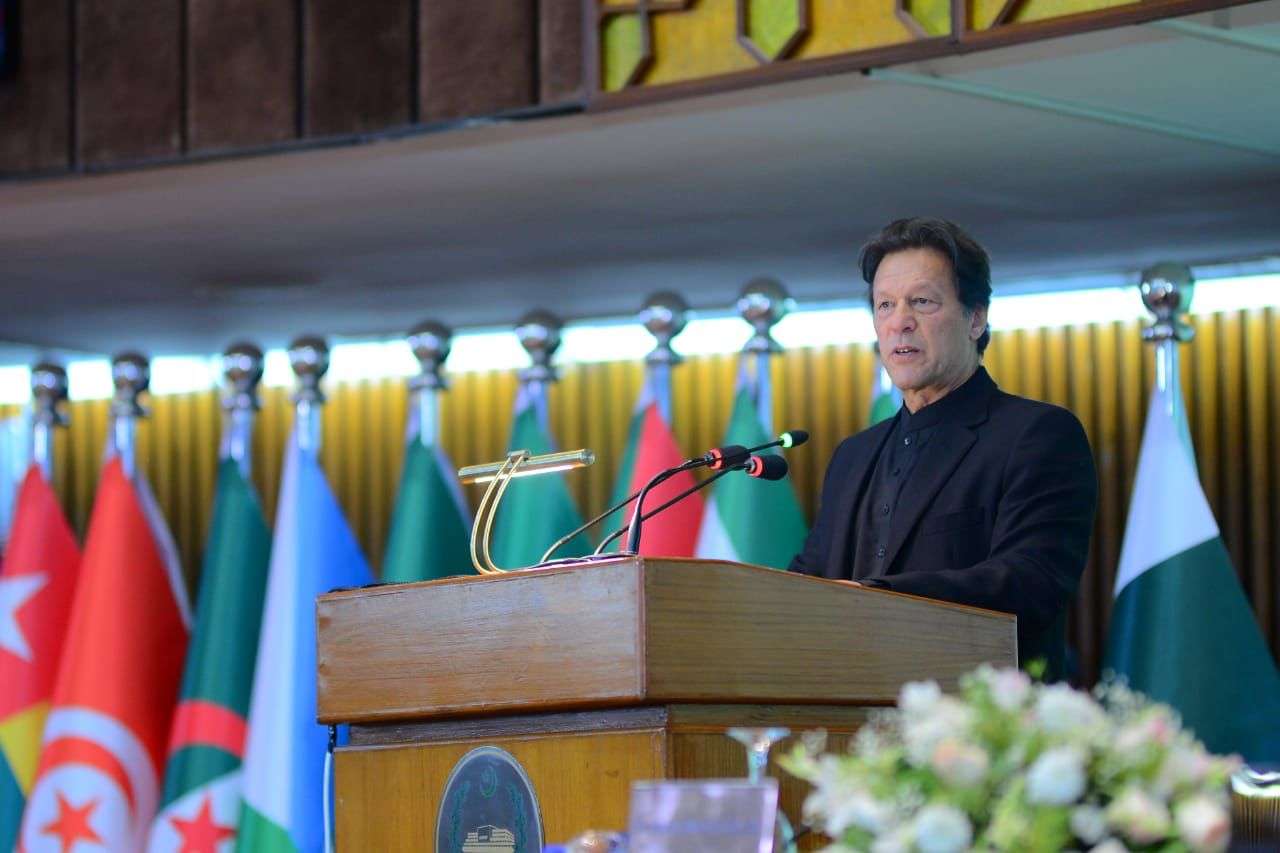On Sunday, Pakistan's Prime Minister Imran Khan urged the world leaders to take urgent action to save Afghanistan that's heading towards chaos.
In his address at the 17th Extraordinary Session of the Council of Foreign Ministers of Organization of Islamic Cooperation (OIC) being held in Pakistan, the prime minister said: “Unless action is taken immediately, Afghanistan is heading for chaos. Any government when it cannot pay salaries to public servants, doctors, and nurses, any government is going to collapse. But chaos suits no one. It certainly does not suit the United States."
"I request that the world leaders take immediate action in view of the gravity of the situation in Afghanistan."
Prime Minister Khan also made his remarks while highlighting the collapsing hospitals, education sector, and deteriorating humanitarian situation in Afghanistan.
In the same connection, the Pakistani prime minister said that owing to a dearth of resources, if the Afghan government remained unable to counter-terrorism, other countries may also face its spillover impact.
Commenting on the presence of ISIL in Afghanistan, and terror attacks inside Pakistan by it from across the Afghan border, the prime minister said the only way to handle the terror outfit was a stable Afghanistan.
Further, he affirmed that his country had also the same worry having faced the biggest collateral damage of the Afghan war with the loss of 80,000 people and the shattered economy, and displacement of 3.5 million people.
The prime minister welcomed the delegates in Pakistan and said, ironically, Pakistan had hosted an OIC moot on Afghanistan 41 years ago as no country suffered from conflicts as much as Afghanistan.
The Pakistani leader indicated the situation in Afghanistan was also caused by the years of corrupt government, suspension of foreign aid, freezing of foreign assets, and dysfunctional banking system which could lead to the collapse of any state.

He called on the world not to link their support with the Taliban rather they must think of 40 million people.
However, he also said that the Taliban government would also have to understand that formation of an inclusive government, respect for human rights particularly women’s rights, and disallowing the use of Afghan soil for terrorism in other countries would pave the way for international aid to Afghanistan.
He also mentioned his meeting with the interim Afghan foreign minister, in which he had categorically assured to comply with all the aforesaid conditions.
The prime minister, however, asked the international community to be sensitive to the cultural traditions in Afghanistan as well as adjoining areas in Pakistan particularly considering girls’ education.
The prime minister affirmed that any chaos in Afghanistan would lead to a mass exodus of refugees, which would be unaffordable for Pakistan rather than no developing country.
Moreover, he noted that the developed countries had a problem even with the smallest number of resettled refugees, so he wondered how a developing country like Pakistan could host hundreds of thousands of them.
The prime minister appreciated the Islamic Development Bank’s proposal for an immediate and long-term support mechanism for Afghanistan and hoped the moot would come up with a proper roadmap to deal with the situation.

He also took this occasion to call for OIC’s unified response on the issues of Kashmir and Palestine where people were struggling for their democratic rights also guaranteed by the United Nations.
"The people of Palestine and Kashmir look to us. They want to see a unified response from us about the heir human rights, democratic rights, the right which had been given by the United Nations Security Council but unfortunately not implemented."
In conclusion, Khan urged the OIC countries to raise the issue at every forum and show a unified stance.
The session was held in the presence of high-ranking officials, including around 20 foreign ministers, 10 deputy foreign ministers, and 70 delegates, and convened by Saudi Arabia as OIC chair and hosted by Pakistan to discuss the Afghanistan humanitarian crisis.













